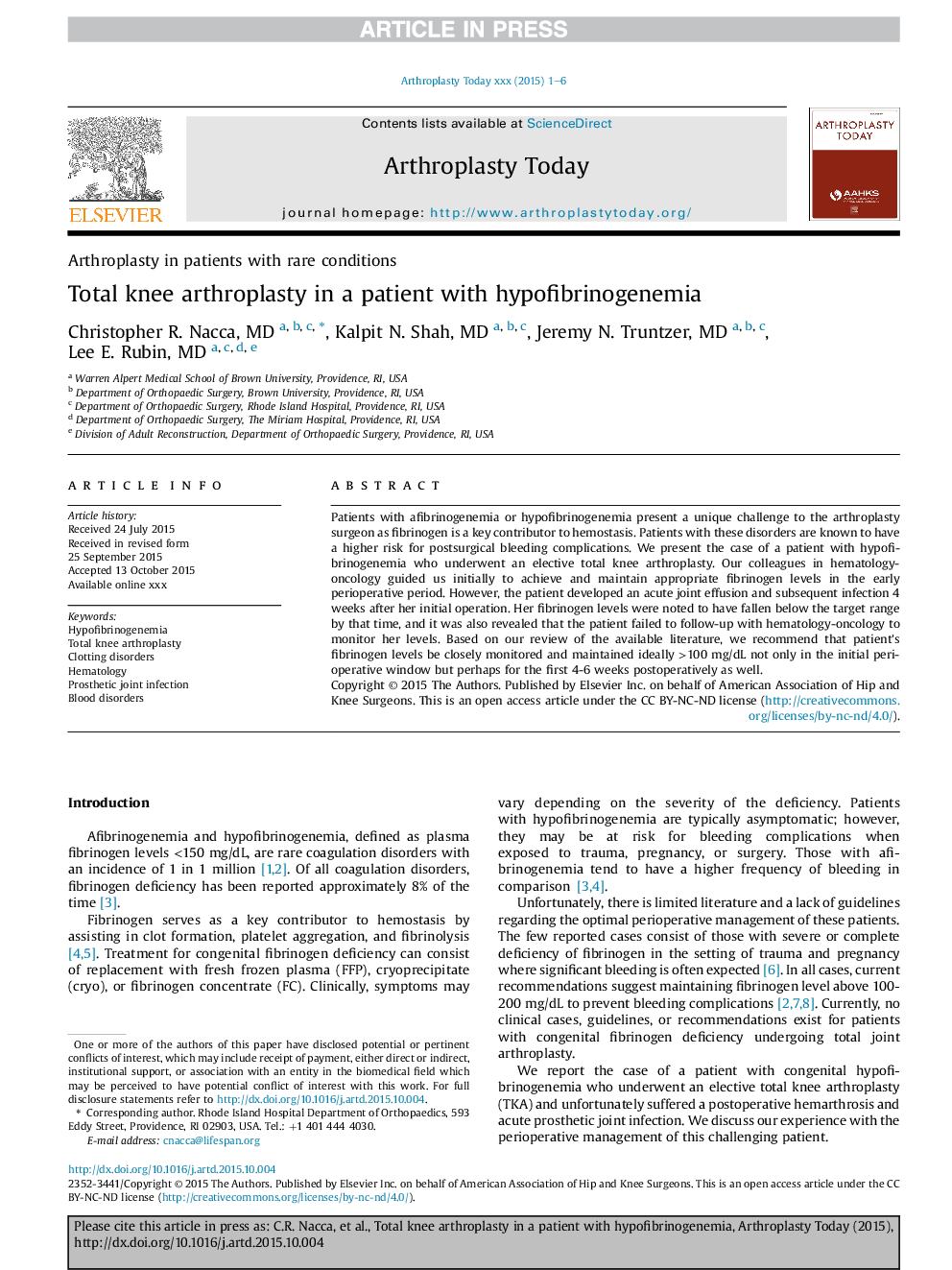| Article ID | Journal | Published Year | Pages | File Type |
|---|---|---|---|---|
| 8796172 | Arthroplasty Today | 2016 | 6 Pages |
Abstract
Patients with afibrinogenemia or hypofibrinogenemia present a unique challenge to the arthroplasty surgeon as fibrinogen is a key contributor to hemostasis. Patients with these disorders are known to have a higher risk for postsurgical bleeding complications. We present the case of a patient with hypofibrinogenemia who underwent an elective total knee arthroplasty. Our colleagues in hematology-oncology guided us initially to achieve and maintain appropriate fibrinogen levels in the early perioperative period. However, the patient developed an acute joint effusion and subsequent infection 4 weeks after her initial operation. Her fibrinogen levels were noted to have fallen below the target range by that time, and it was also revealed that the patient failed to follow-up with hematology-oncology to monitor her levels. Based on our review of the available literature, we recommend that patient's fibrinogen levels be closely monitored and maintained ideally >100 mg/dL not only in the initial perioperative window but perhaps for the first 4-6 weeks postoperatively as well.
Keywords
Related Topics
Health Sciences
Medicine and Dentistry
Orthopedics, Sports Medicine and Rehabilitation
Authors
Christopher R. MD, Kalpit N. MD, Jeremy N. MD, Lee E. MD,
